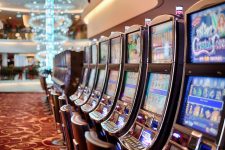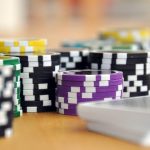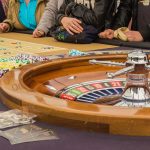Exposing the Tricks of the Gaming Industry

Blake O’Connor and Ugur Nedim
Three minority federal politicians are vowing to use their parliamentary privilege to expose what they say is the misleading conduct of the gaming industry.
The ‘pokie-leaks’ campaign has been launched by Independent Senator Nick Xenophon, Greens Senator Larissa Waters and Independent MP Andrew Wilkie. The trio aim to gather information about methods used to target vulnerable players, to keep them playing, and the political donations and lobbying which keeps the industry on the A-list of major political parties.
Misleading and Deceptive
The campaign comes as Melbourne’s Crown Casino and Australian Slot Manufacturer Aristocrat are being taken to the Federal Court by former habitual slot player Shonica Guy.
Ms Guy is seeking a court declaration that the machines are misleading or deceptive, or are likely to mislead or deceive. She spent 14 years playing the machines and says her addiction took over her life:
“Half my life was wasted. I was hypnotised for a decade; I didn’t know I was hooked … I thought I had a fair chance of winning, but I found out that they are rigged. They trick with design features”.
Under the Australian Consumer Law, businesses are prohibited from engaging in misleading or deceptive conduct. Among other things, opponents of gaming machines argue they are designed to disguise losses as wins, misleading players about what is actually going on.
Proudly pokies free
Another campaign titled ‘Proudly Pokies Free’ has also been launched against the proliferation of poker machines. The campaign to attract patrons by promoting the absence of gaming machines on their licensed premises.
‘Pokie free’ venues aim to focus on live entertainment and socialising, rather than luring people to ‘one arm bandits’.
Prevalence of poker machines
Australia is reported to have 20% of the world’s poker machines, despite accounting for just 0.3% of the world’s population.
We lose around $12 billion per year on the pokies, equating to about $1,241 per person in the 2014-15 year, an increase of 4.9% on the previous year. Over 40% of this sum is attributed to problem gamblers.
Greens Senator, Larissa Waters, recognises that that the Pokie Leaks Campaign will not be an easy battle:
“The industry has a history of making big donations to the major political parties, and they’ve got a history of suing politicians who get in their way, so I’m under no illusions that this will be a walk in the park”
Gambling and Crime
Like other addictions, criminologists have long linked gambling to crime, with those who cannot afford to support their habits committing criminal offences to get the money for their next fix.
Two habitual gamblers were recently prosecuted after defrauding their employer of $80,000 to feed their habits. As a result of the fraud, the Casino-Boolangle Local Aboriginal Land Council was placed in a precarious financial position with debts of more than $140,000, including significant debts to the Australian Tax Office.
In another recent case, leading NSW senior police constable was charged over allegations that he misappropriated $15,000 in order to fund his gambling habit.
Similar cases are not uncommon – criminal lawyers often represent clients charged with fraud and other offences after dishonestly obtaining funds to support their all-consuming habits.
Addicted to Tax
Many are critical of the NSW government’s reliance on the gambling dollar, saying our state is addicted to its never-ending stream of tax revenue at the expense of its people.
Indeed, poker machines in pubs are estimated to have generated $623 million and those in registered clubs $714 million in the 2016-2016 financial year alone.
Certainly, a lot of this money could be used for much-needed investments in the NSW public health system, public education and addressing the harm caused by gambling and other addictions.
But critics argue that raising funds through the misery of addicts should not be a model for any government, especially in light of the destruction it can inflict upon families.






